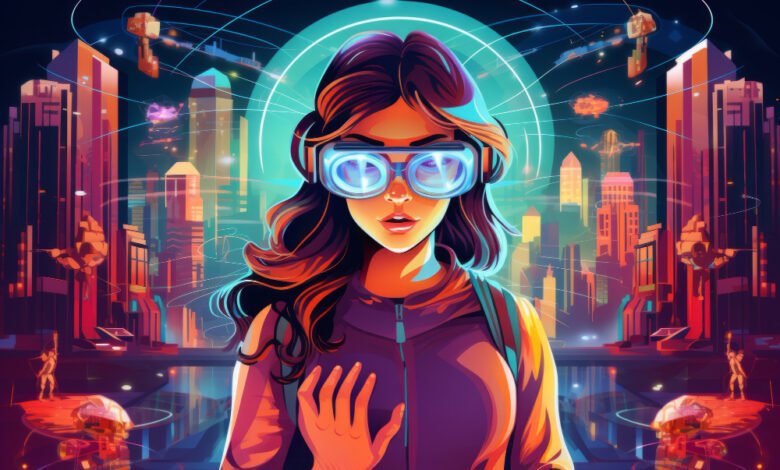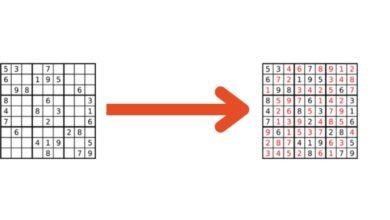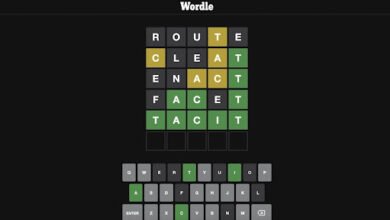
The metaverse is no longer a futuristic concept. It is a digital reality where people socialize, work, shop, and play. With advancements in virtual worlds and immersive technologies, the metaverse has created new economic systems. At the core of these systems lies non-fungible token (NFT) development.
NFTs are not just about digital art or collectables anymore. They now serve as essential building blocks for virtual economies. From ownership of virtual land to tokenized goods, NFTs are enabling new ways to trade and create value. Let’s dive into how NFT development is shaping the metaverse economy and the opportunities it brings.
The Role of NFTs in the Metaverse
Non-fungible tokens are unique digital assets stored on blockchain networks. Unlike cryptocurrencies, which are interchangeable, NFTs are one-of-a-kind and cannot be replicated. This uniqueness is why they are perfect for representing ownership of virtual assets in the metaverse.
For example, a virtual plot of land in a digital world can be tokenized as an NFT. This NFT serves as proof of ownership, allowing users to buy, sell, or trade their property. Similarly, items like clothing for avatars, virtual art, or in-game weapons can also be tokenized. The ability to authenticate ownership and transfer these assets seamlessly is driving the adoption of NFTs in the metaverse.
Blockchain technology powers this ecosystem. By integrating crypto token development, developers ensure that these assets remain secure, transparent, and decentralized. This infrastructure forms the backbone of the metaverse economy.
Virtual Real Estate and NFT Development
One of the most significant ways NFTs are shaping the metaverse economy is through virtual real estate. Digital worlds like Decentraland and The Sandbox allow users to purchase virtual plots of land as NFTs. These tokens represent ownership of specific parcels within these worlds.
Virtual real estate has become a lucrative market. Startups, brands, and individuals are investing in digital land to build virtual stores, event spaces, and entertainment venues. For example, a brand might purchase virtual property to host a product launch or create an interactive experience for users.
The process begins with token development companies creating secure, tamper-proof NFTs for these properties. Once tokenized, these virtual assets can be sold on NFT marketplaces or rented out for profit. This model creates opportunities for property development, leasing, and even virtual tourism within the metaverse.
Digital Goods and In-World Economies
NFTs have redefined the concept of ownership in virtual worlds. Avatars, virtual clothing, and accessories can now be tokenized. This means users can buy these items, truly own them, and even resell them if they wish.
This shift has led to the rise of creator-driven economies. Artists, designers, and developers can monetize their work directly in the metaverse. For example, a designer can create a unique outfit for avatars and sell it as an NFT. Since these items are stored on the blockchain, they remain accessible to users across platforms.
Gaming is another area where NFTs are making a big impact. Players can earn, trade, and sell in-game assets like weapons or vehicles. Unlike traditional games where assets are locked to a specific platform, NFTs allow players to take their items across different games. This interoperability is only possible through advanced crypto token development.
Tokenized Experiences and Events
The metaverse is about more than just owning virtual assets. It’s also a space for shared experiences. Concerts, art galleries, and gaming tournaments are becoming popular events within the digital world. NFTs are playing a key role in monetizing these experiences.
Event organizers can create NFT tickets for virtual concerts or exhibitions. These tickets act as proof of entry and can also be resold on secondary markets. Similarly, performers and artists can sell exclusive content as NFTs, providing fans with access to special experiences.
The blockchain ensures that transactions remain secure and traceable. This creates trust between creators and consumers. Many token development companies are now focusing on building platforms to support this growing demand for tokenized events.
Interoperability and Cross-Platform Integration
A critical challenge for the metaverse economy is ensuring that assets can be used across multiple platforms. NFTs are solving this issue. Since they are built on decentralized blockchain networks, they can operate independently of any single platform.
For instance, a user could purchase a virtual jacket in one metaverse and wear it in another. This interoperability allows for seamless integration between different virtual worlds, creating a unified digital economy.
However, achieving this level of functionality requires advanced crypto token development expertise. Developers must create NFTs that adhere to global standards and protocols to ensure compatibility. This focus on interoperability is paving the way for a more connected and accessible metaverse.
Challenges in NFT Development for the Metaverse
While NFTs are driving growth in the metaverse economy, their development is not without challenges.
One major issue is scalability. Blockchain networks often struggle to handle the high transaction volumes required by the metaverse. Developers are working to address this through solutions like layer-2 protocols and sidechains.
Security is another concern. Hackers and fraudsters target NFT marketplaces and wallets. To prevent this, token development companies must implement robust security measures, including smart contract audits and multi-signature wallets.
Regulatory uncertainty also poses risks. Governments worldwide are still figuring out how to regulate NFTs and digital assets. Startups and developers need to stay updated on legal requirements to avoid potential complications.
The Future of NFTs in the Metaverse Economy
The integration of NFTs into the metaverse is still in its early stages. But the potential is enormous. As blockchain technology matures, we can expect more advanced features and use cases.
One emerging trend is the concept of virtual workspaces. Companies are exploring ways to tokenize office spaces within the metaverse. Employees could use these spaces for collaboration and meetings, with access controlled through NFTs.
Education is another area where NFTs can play a significant role. Virtual classrooms and learning materials can be tokenized, allowing students to access personalized content.
As the demand for NFT solutions grows, a token development company will play a crucial role in building the infrastructure needed to support these applications. From creating secure marketplaces to developing decentralized platforms, their work will shape the future of the metaverse economy.
Conclusion
Non-fungible token development is transforming the metaverse economy. By enabling true ownership, interoperability, and secure transactions, NFTs are creating new opportunities for businesses, creators, and users alike.
Whether it’s virtual real estate, in-game assets, or tokenized experiences, NFTs are unlocking the full potential of digital worlds. However, success in this space requires advanced crypto token development and a focus on security and scalability.
As the metaverse continues to evolve, NFTs will remain at the forefront, shaping how people interact, trade, and create value in the digital age. Businesses that embrace this technology now will be well-positioned to thrive in the metaverse economy of the future.



